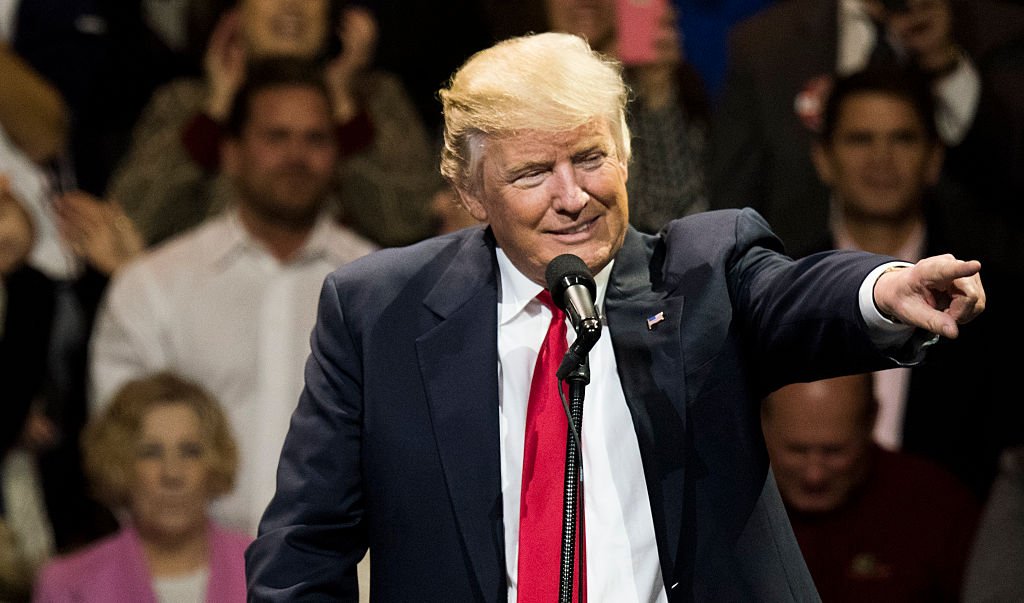
President-elect Donald Trump’s promise to fire up U.S. growth by cutting taxes and developing a trillion dollars of infrastructure has helped fuel a dollar rally that’s weakened the yen by nearly 8.5 percent since the day before the election, almost certainly bringing relief to Japanese policy makers.
Add rising oil prices, the likelihood of higher interest rates in the U.S. and a global shift toward fiscal stimulus to spur growth, and you have a recipe for Japan’s economy gaining some traction next year.
"It could be a potentially good year for Japan if we get the ‘Trump the Keynesian’ scenario," said Paul Gruenwald, Asia-Pacific chief economist at S&P Global Rating, referring to John Maynard Keynes, who advocated government spending to replace private demand in economic downswings.
The Japanese economy has struggled in recent years. A collapse in oil prices in 2014-15 and economic and political uncertainty throughout 2016, including the Brexit vote, countered the Bank of Japan’s efforts to generate inflation and growth through quantitative easing and a weaker currency. The yen rose to nearly a three-year high this year, while the core consumer price gauge sank to a three-year low in negative territory.
With a more favorable environment, economists are raising their forecasts for Japan as well as the global economy.
Growth Forecasts
Morgan Stanley MUFG said it sees growth of 1.3 percent next year and 0.9 percent in 2018 -- well above the potential growth rate of about 0.3 percent. It also forecasts inflation near 2 percent at end-2018, up from minus 0.4 percent in October.
To be sure, the shift in markets has been driven by expectations that could go unfulfilled. There’s no guarantee that Trump will be able to enact his policies, and even if he does, getting infrastructure projects off the ground can be difficult and slow. The dollar rally may lose steam, or a flareup of global turmoil could see the haven yen quickly reverse and strengthen.
Yet other factors support a more upbeat outlook for Japan. Not least is its own fiscal stance. In its forecasts, Morgan Stanley noted that a fiscal stimulus package passed by parliament in October, including money for infrastructure and earthquake relief, will be spent over the next two years.
Trump’s spending promises, if realized, are expected to fuel demand for imports and related services -- as well as inflation, higher U.S. interest rates and a stronger dollar -- a welcome scenario for Japanese exporters.
A big increase in U.S. infrastructure spending could unleash growth and employment, said Douglas Paal, a vice president at the Carnegie Endowment for International Peace. "The dollar could soar, sucking in imports as well as investment. "
Trading Partner
The U.S is Japan’s second-biggest trading partner, buying everything from cars and machinery to business and professional services. Japanese companies are ideally placed to compete for the U.S. infrastructure projects given their experience operating in a sluggish economy, said Martin Schulz, a senior economist at Fujitsu Research Institute in Tokyo.
"Japanese companies will remain among the strongest contenders for realistic projects because their long history in low-growth environments, extremely high levels of technology, efficiency and low financing costs clearly gives them an edge in future public-private partnerships," Schulz said.
Stronger U.S. demand for imports was one reason the Organization for Economic Cooperation and Development recently lifted its global growth forecasts for 2017. The OECD expects a rebound in international trade to drive Japan’s export growth higher over the next two years, with the economy growing 1 percent next year before slowing to a 0.8 percent expansion in 2018.
Structural Problems
Some caution, though, that the windfall of a weaker currency isn’t going to fix the structural problems that have been holding Japan’s economy back for years.
"Boosting demand is not going to help much," said Richard Jerram, chief economist at Bank of Singapore Ltd. "You could even argue that all of this distracts from the broader failures to make much progress on structural reform."
Then there’s the Trans-Pacific Partnership. Japanese Prime Minister Shinzo Abe had touted the U.S. backed TPP as a catalyst for some of those reforms, particularly in the agriculture sector. But the deal appears dead, with Trump strongly opposing it and Republican congressional leaders saying they won’t bring it to a vote before he takes office.
Still, the improving external factors and ongoing fiscal spending bode well for Japan, said Jun Okumura, a visiting scholar at Meiji Institute for Global Affairs.
"It doesn’t take an economist to see that current circumstances favor the Abe administration in in 2017," he said.
blob:https://www.bloomberg.com/552d80dd-7c8f-4be7-ad75-d549b37b05f5
Bloomberg
No comments:
Post a Comment